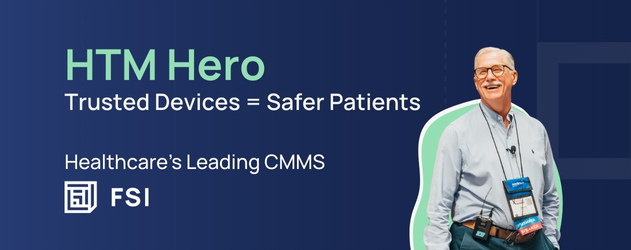We have a list of resources for an aspiring Biomedical Technician, including how to get your start in the field. You can read about resume, interview, and job preparation. Learn about the variety of job titles and roles within the field in addition to some certification examinations that may help give you a leg up. Keep checking back, as we are continually adding to this list!
Check out our consolidated list to popular third party companies and program job opportunities: BMET Career Opportunities
- Apprenticeship Programs for BMETs & FSEs
- Become a BMET
- Biomedical Engineer vs Clinical Engineer vs BMET
- BMET Basics
- BMET Pay
- BMET Programs
- Customer Service Skills
- Field Service Engineer
- In-House vs Third-Party
- Internship Expectations
- Interview Tips
- Job Hunting
- Military Trained BMET Transition
- New BMET Interview Practice Questions
- New BMET Tips
- On Call
- Preparing For First Day
- Pros & Cons of Being A BMET
- Remote Work Opportunities
- Resume & Interview Assistance
- Resume Tips
- Troubleshooting Tips
For aspiring Biomedical Equipment Technicians (BMETs), biomeds, Clinical Engineers, and professionals in Health Technology Management (HTM), access to tips, guides, and resources is crucial for their development and success in the field. Here’s an overview of why these resources are important:
1. Foundational Knowledge
- Understanding Core Concepts: Tips and guides provide foundational knowledge about medical devices, their functionalities, and how they are used in clinical settings. This understanding is essential for effective troubleshooting and maintenance.
- Industry Standards: Resources often cover important industry standards, regulations, and best practices, ensuring that aspiring professionals are aware of the requirements and expectations in healthcare technology management.
2. Skill Development
- Hands-On Tips: Practical tips and guides can help individuals learn specific technical skills and techniques necessary for equipment repair and maintenance, enhancing their hands-on experience.
- Continuous Improvement: Resources that focus on skill enhancement allow aspiring professionals to engage in continuous learning, improving their competencies and adaptability in a rapidly evolving field.
3. Professional Growth
- Career Path Guidance: Resources often outline potential career paths within the biomedical field, helping aspiring BMETs and Clinical Engineers understand their options and the steps required to advance their careers.
- Networking Opportunities: Many guides provide information about professional organizations and associations, which can be valuable for networking and connecting with industry experts.
4. Troubleshooting Support
- Reference Materials: Tips and guides often include troubleshooting checklists, flowcharts, and common issue resolutions that can assist professionals in diagnosing and fixing equipment problems efficiently.
- Resourceful Problem-Solving: Access to various troubleshooting resources empowers aspiring biomeds and engineers to develop their problem-solving skills, enabling them to tackle complex equipment issues confidently.
5. Staying Current with Technology
- Awareness of Innovations: The field of medical technology is constantly advancing. Resources provide insights into new devices, emerging technologies, and trends, keeping professionals informed and relevant.
- Educational Materials: Access to online courses, webinars, and tutorials helps aspiring professionals learn about the latest advancements in biomedical equipment and technology.
6. Compliance and Safety
- Understanding Regulations: Resources that focus on regulatory compliance, safety standards, and quality assurance practices are vital for ensuring that aspiring professionals understand their responsibilities in maintaining equipment safety.
- Best Practices for Safety: Guides that outline safety protocols help individuals adopt best practices for handling medical equipment, thereby minimizing risks to themselves and patients.
7. Documentation and Reporting
- Standardized Procedures: Resources often provide templates and examples for documentation and reporting, ensuring that aspiring professionals understand the importance of accurate record-keeping in their roles.
- Effective Communication: Understanding the standards for documentation enhances communication with clinical staff and ensures that records are clear and useful for future reference.
8. Building Confidence
- Preparation for Real-World Scenarios: Access to tips and guides allows aspiring BMETs to prepare for real-world situations they will encounter in clinical settings, building their confidence in their abilities to handle challenges.
- Mentorship and Support: Engaging with resources that include expert advice and personal experiences can provide encouragement and inspiration, helping aspiring professionals navigate their career journeys.
9. Fostering a Community
- Networking and Collaboration: Resources often highlight forums, discussion groups, and local chapters of professional organizations, fostering a sense of community among aspiring and current professionals.
- Peer Learning: Connecting with others in the field allows individuals to share knowledge, experiences, and solutions, enhancing their learning and development.
Conclusion
For aspiring Biomedical Equipment Technicians, biomeds, Clinical Engineers, and HTM professionals, access to tips, guides, and resources is invaluable. These materials provide essential knowledge, enhance skills, support professional growth, and foster a sense of community within the field. By leveraging these resources, individuals can prepare themselves for successful careers, contribute positively to healthcare technology management, and ultimately improve patient care outcomes.

